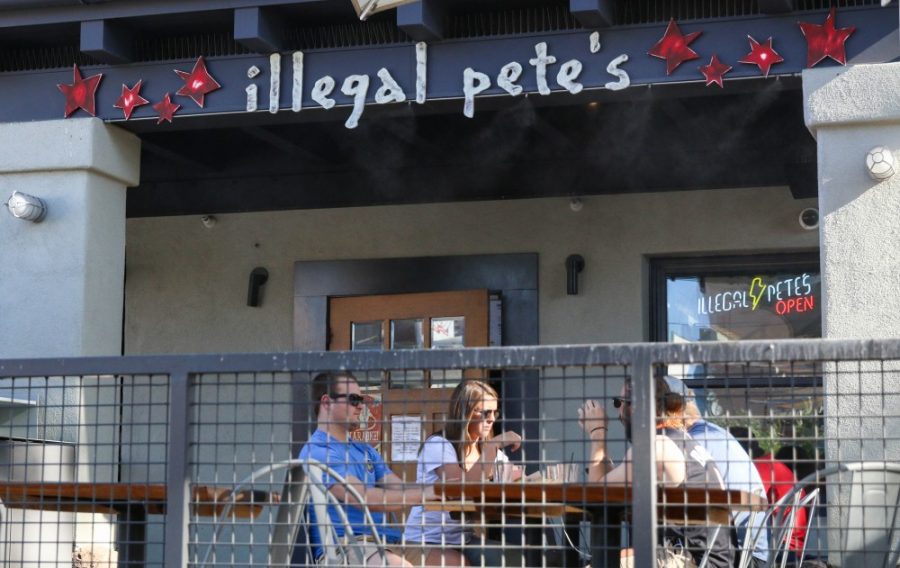The increase in food takeout due to the pandemic has also led to an increase in single-use plastic items.
This is particularly relevant when it comes to the increase in takeout food packaging as well as the use of non-reusable silverware, cups or plates, even when dining in. Food waste itself, which can include the spoiling of food or food that is just thrown away, is already a problem in the U.S. According to the US Department of Agriculture, food waste accounts for 30-40% of the food supply.
“As an industry as far as sustainability goes, this was almost like a step back,” said Constante Joseph Agbannawag, the sustainability program coordinator at the Office of Sustainability at the University of Arizona. “A lot of different places around the world and around the country saw an uptick in single-use plastics.”
The spread of the coronavirus was unknown during the beginning of the pandemic. Customers, as well as employees, wanted to feel safer about how they were handling the food they bought at restaurants or the coffee from a cafe. In order to ensure this, businesses avoided their usual washable utensils or cups.
RELATED: Arizona Student Unions reconsiders meal plan changes after student backlash
“A couple of months into the pandemic, though, we did start seeing reports that said reusables are safe and are a thing that can be utilized as long as we sanitize properly between uses,” Agbannawag said.
However, Agbannawag said that proper sanitation cannot always be assumed. He also said that the public perception when it comes to touching something someone else has touched remains concerning.
Compost Cats, a composting program run through the Office of Sustainability at the UA, is working with the city of Tucson to take compost not only from the UA Student Unions but also from businesses around Tucson.
Composting is a way to divert food waste from landfills by converting food scraps along with leaves or branches into plant fertilizer.
“Compost Cats is now working with the Unions and Office of Sustainability to identify how we can buy more compostable single-use items. There’s a big distinction between bioplastics and compostable items, and we’re trying to work with the Unions to really identify what single-use items like clamshells or straws or silverware that we can buy and give to students that can then be composted,” Agbannawag said.
Ray Flores, president of Flores Concepts which owns El Charro as well as Charro Steak, Charro del Rey, Charrovida and Barrio Charro, said that 90 percent of their packaging is environmentally friendly. Before the pandemic, Flores Concepts made efforts to convert most of their takeout program into sustainable packaging.
Since the pandemic, keeping up with this commitment to sustainable packaging has been costly as supply chains have been struggling. According to Flores, this could be due to reduced labor or shutdowns in manufacturing facilities. It also could be the result of high demand in general as the industry attempts to move toward sustainable packaging.
“We may have had something that we thought was a solution, and all of a sudden, we don’t have it anymore. Things that may come out of other parts of the world are hard to get,” Flores said.
The El Charro restaurants did have to transition their utensils, as well as their menus, to single-use when dining in.
“During the pandemic, we definitely went through a lot of those kinds of items because that’s what people needed to feel secure that things weren’t touched or washed,” Flores said.
However, the takeout packaging at Barrio Charro, a fast-casual Flores Concepts restaurant that opened during the pandemic, is entirely sustainable according to Flores.
Currently, the El Charro restaurants, as other restaurants may be, are in the process of transitioning back into the normal balance of dine-in and takeout orders. However, the restaurant is not entirely back to where it was. Still, about 20-30 percent of their sales are takeout. During a normal time, this would be around 10-15 percent, according to Flores.
“The pandemic winding down, if you will, has created a surge of business, but it’s also created a surge of issues that make it hard to be as efficient and profitable as we should be,” Flores said.
Follow Noah Cullen on Twitter









